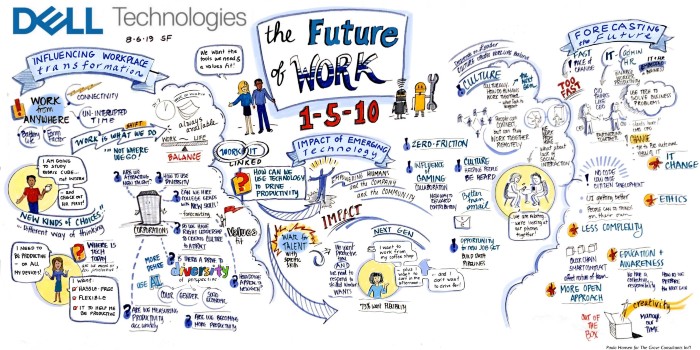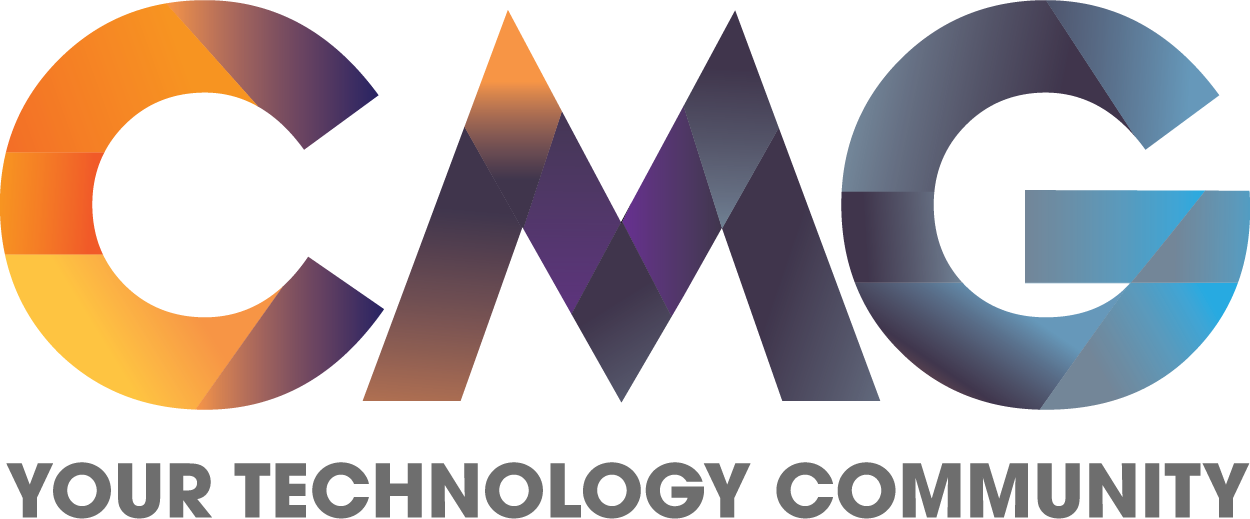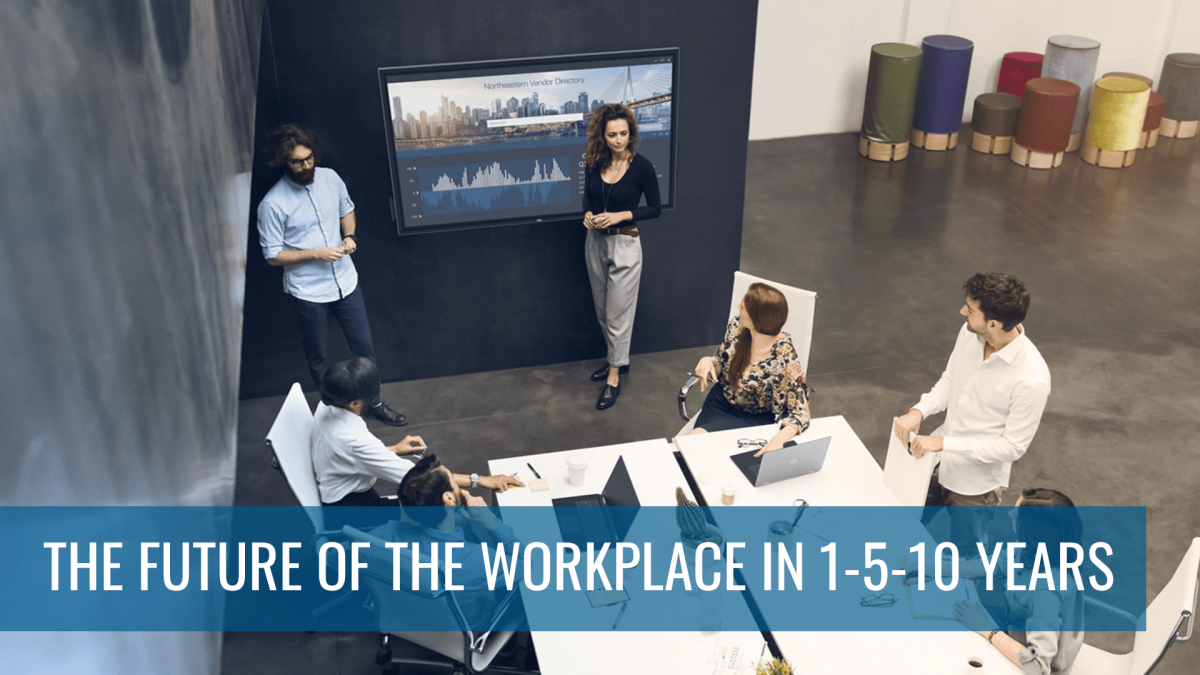The Future of the Workplace in 1-5-10 Years

Virtual Conference 2020 – Q&A Session with Reg Harbeck – The Human Past, Present and Future of IBM Z
April 8, 2020
Enabling a Productive and Secure Workforce
April 8, 2020Technology and innovation are constantly creating new opportunities and challenges that will impact how we work in 2020 and in the years to come. With that in mind, Dell Technologies recently invited an eclectic group of colleagues, partners, media, analysts and industry experts to help us explore the transformative trends reshaping the workplace. We explored the future: one year out, five years out, and 10 years out. Here’s where we arrived:
One Year: The Duality of the Mobile Workforce
While the introduction of mobile technology and cloud-based solutions have certainly helped make the idea of working anytime, anywhere a reality, the mix of Baby Boomers, Generation X, Millennials and now, Gen-Z, creates a complicated dynamic of working styles and productivity drivers that are hard to ignore.
As work becomes less of a place you go, and more of a task you perform, employees expect to be able to work whenever they want, wherever they want. But are businesses truly ready to evolve the traditional 9-to-5 desk job to meet the needs and expectations of employees?
In the next year, businesses will need to strike a balance between empowering employees to work virtual through advanced technology solutions and retaining a workplace environment that allows their employees to work onsite in the office; maintaining company culture and productivity.
Five Years: Understanding and Satisfying the Expectations of Gen Z
They’re coming! The first wave of Gen Z employees started infiltrating workforces in 2019 and they’re very different from their millennial counterparts. They’ve grown up with cutting-edge technology and are a hyperconnected, collaborative cohort that is accustomed to learning and working in groups.
So, will organizations be ready to meet the needs of these digital natives? They’d better be. Gen Z employees want to focus their skills at companies that provide the flexibility and freedom to be entrepreneurial through personalized roles. What’s more, they see the tech industry as the sweet spot to pursue these career goals.
Providing intuitive technology and solutions is just one piece of the puzzle for organizations looking to attract this next wave of talent. In the next five years, organizations will need to challenge the hierarchical power dynamic between employees and employers, and provide Gen Z employees with career paths that develop and bolster their skills in new and exciting ways.
Ten Years: People and Technology Form the Fabric of the Organization
In 10 years, the workplace will be completely redefined as the what we call the fourth industrial revolution has fully taken hold. Technology and IT solutions will more seamlessly support and offload and workplace tasks, and this in turn will reshape the responsibilities and roles of employers and employees. A recent workplace study by McKinsey reported that 60 percent of jobs will be transformed through the automation of a component tasks by 2030.
While that may sound like a scary prospect for some, the experts don’t expect machines to fully replace us any time soon. Over the next decade, workers and organizations will adapt as machines take over mundane tasks, and new work opportunities will emerge, involving qualities and skills that are fundamentally human.
Employers — specifically the C-Suite — can expect IT to hold an integral role among all functions of the organization. Information and technology will be the invisible threads that drive and connect everything.
Ten years out, organizations that successfully achieve digital workplace transformations will be at an advantage over businesses struggling with legacy systems, massive amounts of data and workforces unprepared for change. Some companies will run the race quicker than others, which could widen the gulf between businesses that are future-ready and able to benefit from emerging technologies, and those that are not. But one thing is for certain: the steps organizations take today — including modernizing infrastructure, inspiring employees, and deploying next-generation technologies — will lay the groundwork for their digital-future and help to bring to fruition the next wave of human led, technology-underpinned progress.






